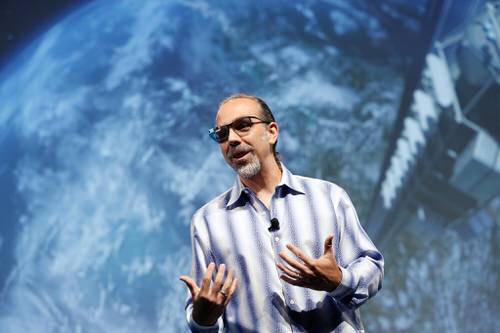
Astro Teller—the Google X chief who leads some of the company’s most hyped, most outlandish “moonshot” projects—is apparently a master of understatement too.
At the Vanity Fair New Establishment Summit in San Francisco, the man responsible for Google Glass explained what the hold-up is for the face gear’s mass-market rollout: “Wearables is tough.”
How insightful.
Still, he’s not wrong. When a gadget is not just a gadget, but an accessory worn on the body for the whole world to see, the rules change. Putting something kind of cyborgian directly on someone’s face is, as Teller puts it, “a big ask.” That item better be worth people’s time.
See also: What Fashionistas Want In A Wearable
But things got murkier from there. Because Teller, sporting his own turquoise Glass on stage, made it very clear why it’s so important for wearable device makers to spell out how their devices help people.
Then he changed gears, saying that a new, category-defying gadget shouldn’t be too explicit about the devices it’s intended to replace or how it should be used.
Instead, he said, companies should just put it out there and let the best uses for it emerge naturally.
“I think we’ll see, not only with Glass, but the watch wearables, with the contact lens, that each of these things have their own best purpose,” he said. “But it will take more on our part and society’s part to figure out what that is.”
In other words, Teller is simultaneously saying that companies like Google should make it perfectly obvious what new wearable devices are good for—while leaving it to consumers to figure out what that is. Those are blindingly contradictory statements.
And that kind of doubletalk may explain why Google Glass has struggled to find its own best purpose.
Photo by TechCrunch

















